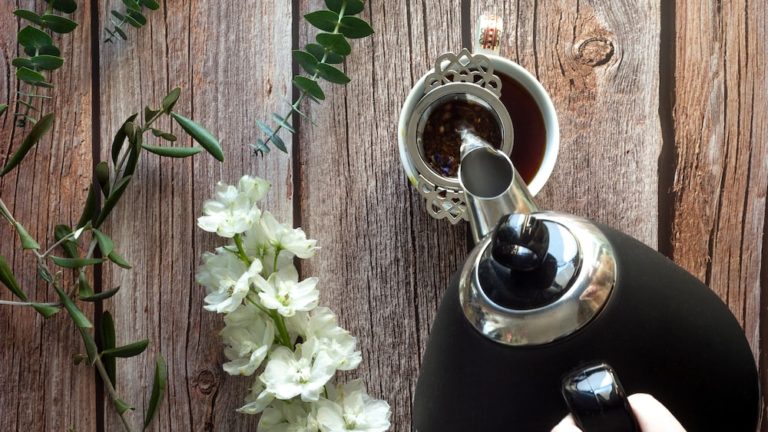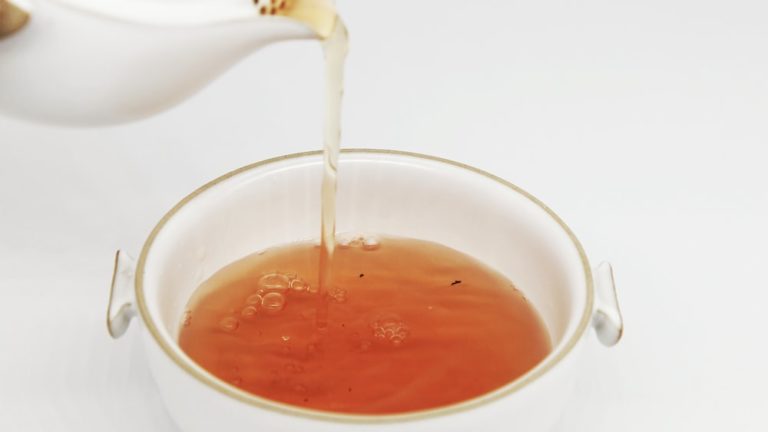Does Thai Tea Have Caffeine? The Truth Revealed!
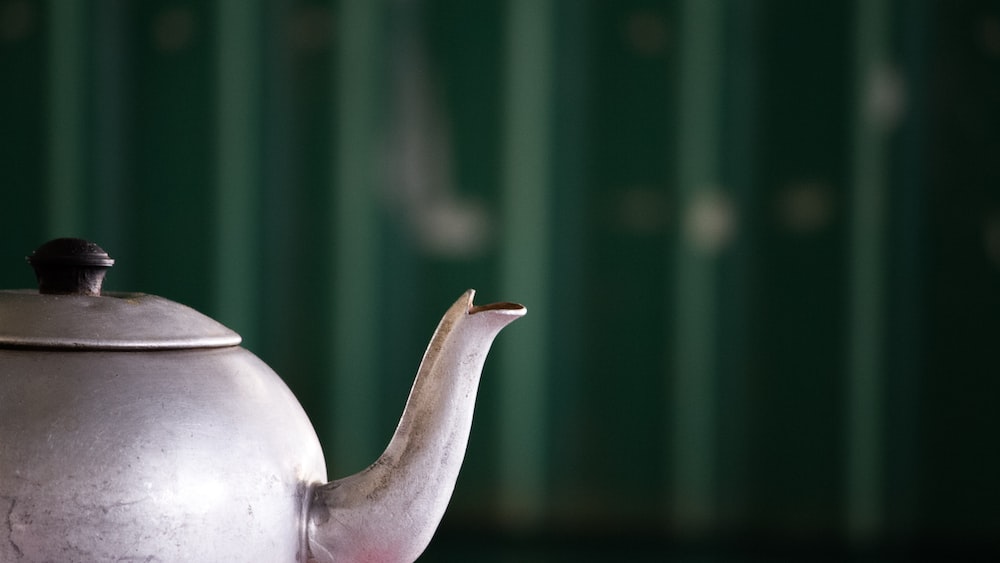
Does Thai Tea Have Caffeine? The Truth Revealed!
Hey there, fellow tea enthusiast! Have you ever found yourself pouring a tall glass of Thai tea, and amid the swirling aroma and vibrant hues, you wondered: does Thai tea have caffeine? Well, you’re not alone! That’s a question on the twitching taste buds of many a tea lover.
Peering into our next brewing adventure, we’re diving into the caffeinated depths of Thai tea. Grab your tea steepers and throw on a lab coat – this is your wellness routine caffeinated, ironically so!
Understanding Thai Tea
But before we spill the tea on this exciting tea flame – pardon my obsession with puns – let’s understand what Thai tea truly is, and the role caffeine plays in it (Hint: yes, it does wear the caffeine crown).
What is Thai Tea?
Thai Tea, also known as Thai iced tea, is a popular beverage from – you guessed it – Thailand! It’s traditionally made from strong-brewed black tea, accompanied by an orchestra of spices and sweetened condensed milk. Serving it over ice, the Thais have turned it into an exotic treat. Delicious, eh? But with every sip, are we just quenching our thirst or servin’ up a caffeinated mocktail?
So, how did this tea come to be? Thai tea traces its roots back to Thailand’s colonial times, when Field Marshal Plaek Phibunsongkhram, the then Prime Minister, sought to create a Thai identity through food and drink.
Thai Tea, also known as Thai iced tea, is a popular beverage from Thailand that was created to establish a unique Thai identity through food and drink during colonial times.
The Key Ingredients of Thai Tea
Confession: Thai tea’s vibrant orange color isn’t all-natural. The distinctive hue comes from food coloring, while its unique flavor comes from a blend of Ceylon or Assam tea, punctuated with a mix of spices, like anise and cardamom.
Rounding off the flavor, Thai tea incorporates sweetened condensed milk. This not only adds a spot of creaminess to the drink, but it also helps to balance the bold flavor of the black tea and spices. Are your taste buds twitching yet, anticipating the adventure?
The Caffeine Content in Thai Tea
Here’s the kicker. Yes, Thai tea has caffeine. Now hold on to your tea cups, because we are about to reveal just how much.
How Much Caffeine is in Thai Tea?
The amount of caffeine in Thai tea can vary; some theories suggest it’s all due to the whim of the tea leaves, others that it’s in the ritualistic brewing process. According to the USDA, a typical 8-oz serving of Thai Iced Tea holds about 20 mg of caffeine.
But remember, caffeine content can hinge on many factors, from the type of black tea used to the steeping time. Ever wondered how Thai tea stacks up to other beverages in the great caffeine race?
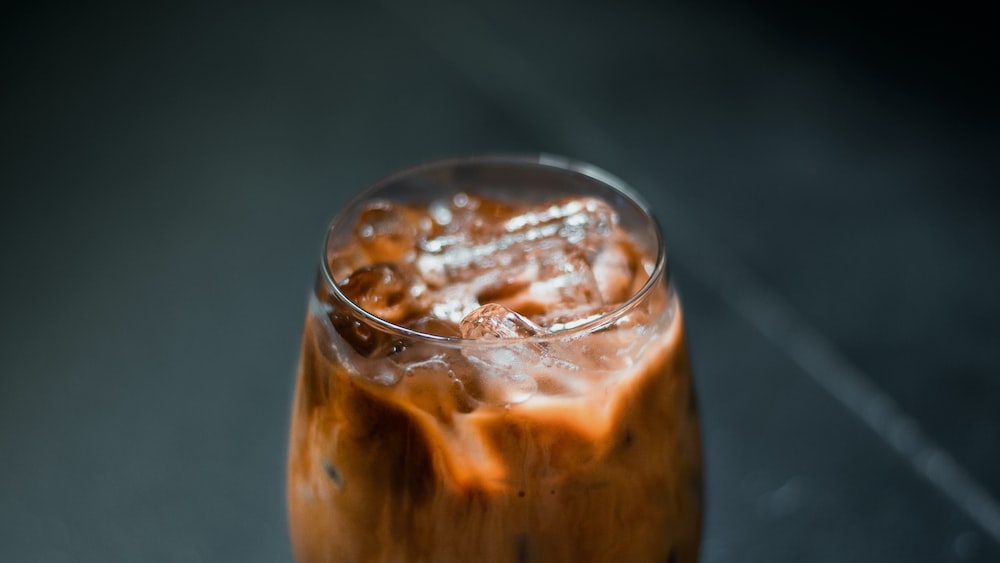
Comparing Caffeine in Thai Tea to Other Beverages
In the global caffeine championship, coffee has always bagged the gold. An 8-oz cup of coffee contains around 95 mg of caffeine, a whopping four times the caffeine in Thai tea.
But what about black tea? On average, black tea contains between 25-48 mg of caffeine per 8-oz serving, potentially double the caffeine you’ll find in a fashionable glass of Thai tea. Interesting, huh? You thought you were merely sipping tea!
Okay, let’s take an timeout from this caffeine party and let those numbers percolate a bit. After all, with great caffeine, comes great responsibility.
Health Implications of Caffeine in Thai Tea
Ever swirled your tongue around a tantalizing swirl of Thai tea, hoping to grasp its essence? Only to be left wide-eyed and twitching, staring at the clock ticking away past midnight? Welcome to the caffeine-induced roller coaster. Ready for a ride to understand the health implications this ride can have on you, dear tea-drinker?
The Benefits and Risks of Caffeine Consumption
So, who’s your pick in the game of chemicals: Alcohol, or our buddy caffeine? Though alcohol can leave you woozy, caffeine can make your heart perform a jiggle worthy of Bobby Kelly’s dance moves.
In moderation, caffeine can be a brain-boosting, metabolism-stirring friend. It can boost mental focus and aid in weight loss. But like most things, excess can lead to side effects. Too much can leave you anxious, insomniac and with a pounding heart. It’s a bit like eating a whole delicious pie – the first slice is heavenly, but by the time you reach the last one, you’re questioning your life decisions.
Specific Health Effects of Caffeine in Thai Tea
Thai tea is a milk tea that’s a superstar in the caffeine world. Its caffeine content is relatively high, easily beating a regular black tea.
So, what might this mean for your health you ask? Ever felt the jitters after a few cups of Thai tea? That’s our friend caffeine acting up, causing increased heart rate and a racing mind. Now imagine your insides wrapped in caffeine, a bit like a classic Shakespherean drama – thrilling, yet dramatic. High caffeine exposure might also lead to digestive issues and increased stress levels. Makes you wish they’d introduce a ‘decaf Thai tea’, right?
Thai tea, with its high caffeine content, can lead to increased heart rate, racing mind, digestive issues, and increased stress levels.
How to Make Thai Tea at Home
Craving that exotic and slightly intoxicating taste of Thai tea? But worried about doing the jitterbug with high caffeine content? Don’t worry, my dear tea-drinker. Guess what, you can brew this delightful milk tea right at your cozy home, with the caffeine levels just as you like!
Traditional Thai Tea Recipe
Here’s a step-by-step guide to prepare the traditional Thai tea:
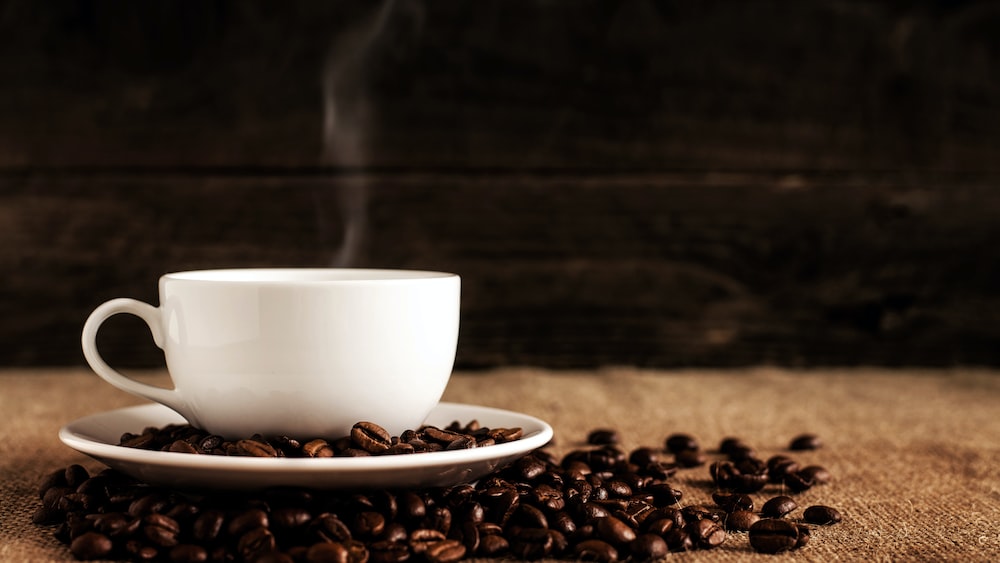
- Pour one cup of boiling water over two tablespoons of Thai tea mix.
- Allow the mix to steep for 5 minutes.
- Strain the tea.
- Add two tablespoons of sugar and stir until fully dissolved.
- Fill a glass with ice and pour in a cup of the sweetened tea.
- Top up with a quarter cup of evaporated milk, and there you have it!
It’s like painting a masterpiece, right? Each step is a stroke of brush culminating into an exotic creation.
It does boil down to one red-hot question though – what about the caffeine?
Adjusting Caffeine Levels in Homemade Thai Tea
To tame the caffeine level in your Thai tea, you need to alter the steeping time. Shortening the steeping time reduces the caffeine content. But remember, going too short on steeping might rob your Thai tea of its characteristic taste.
You can also consider blending your Thai tea mix with a naturally caffeine-free alternative like rooibos or hibiscus teas. That’s like having an exciting tea party with different characters, each bringing a unique taste to the table, without the nerve-wracking caffeine-induced dance-off!
Frequently Asked Questions (FAQs)
Does Thai tea have more caffeine than coffee?
Considering the caffeine amount in both beverages, Thai tea typically has less caffeine than coffee. It’s worth noting though, that the specific amount can vary depending on how strongly you brew either drink. So, while your morning cup of Joe might be a stronger wake-up call, your afternoon Thai tea still holds its own as a gentle stimulant.
Can kids drink Thai iced tea?
Pertaining to kids and Thai iced tea, yes they can – in moderation. Thai tea does contain caffeine, a stimulant which could have varying effects on children depending on their tolerance. It’s recommended to keep a keen eye on the amount consumed to ensure it’s suitable for your child.
Can I drink Thai tea if pregnant?
On drinking Thai tea while pregnant, it ultimately depends on your personal caffeine intake and what your doctor recommends. Thai tea does contain caffeine, a stimulant that pregnant women are advised to have in moderation. It would be best to discuss this with your healthcare provider, considering your personal medical circumstances.
What makes Thai tea orange?
The enchanting orange hue of Thai tea is primarily from food coloring added to the tea blend. The specific source of the color can vary, with some tea producers preferring natural ingredients like tamarind, while others may use artificial food colorings.
Conclusion
All things considered, tea is a personal journey, where one cup might be the ticket to an afternoon pick-me-up and another, a source of contemplation and relaxation. As for Thai tea, beyond its striking orange color and exotic flavor, there’s the subtle stimulant effect of caffeine to consider. So whether you’re a new tea explorer or an old hand looking to try something different, we hope this blog post enlightened you about the mysterious world of Thai tea.
Remember, like any other drink containing caffeine, moderation is key. Regular, but controlled consumption not only allows you to enjoy the great taste, but also benefit from its potential health perks.
And you know what, no matter what time of the day it is, it feels like the perfect moment for a cup of Thai tea, don’t you think? Until next time, tea lovers, keep sipping and exploring!
Yours sincerely, Zoe.


